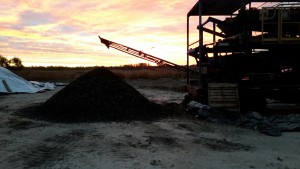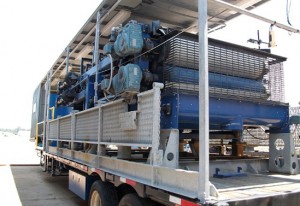 It has been our experience with our mobile belt presses and assisting clients with their equipment that no matter how diligent your winterizing maintenance schedule for a machine located in the colder parts of the country are, something usually needs some attention come the spring thaw.
It has been our experience with our mobile belt presses and assisting clients with their equipment that no matter how diligent your winterizing maintenance schedule for a machine located in the colder parts of the country are, something usually needs some attention come the spring thaw.
The freeze thaw cycle of water through the winter months can be tough on a belt press. We drain and blow down with air all the plumbing on a piece of equipment multiple times in order to try and prevent pipes breaking but there always seems to be a cracked 90 or two. The best way to find these potential leak causing cracks and breaks is to water test your machine prior to putting it back in service. This usually will identify any major issues. Outside of that, pay close attention to all your lines the first few weeks of operation and be sure to have your parts inventory current for when a fix is needed. If it gets to the point were the spring repairs are hurting production, give us a call we would be happy to help and/or send one of our mobile belt presses to help keep you going while the repairs are made!


